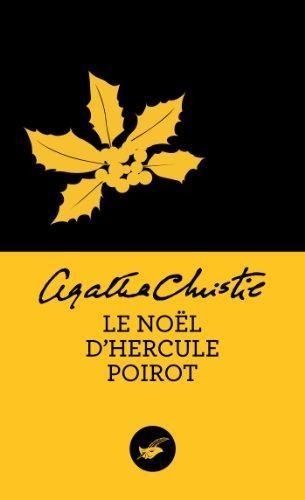lingua French
Pubblicato il 28 Settembre 2012

lingua French
Pubblicato il 28 Settembre 2012
Hercule Poirot's Christmas is a work of detective fiction by British writer Agatha Christie, first published in the UK by the Collins Crime Club on 19 December 1938 (although the first edition is copyright dated 1939). It retailed at seven shillings and sixpence (7/6).It was published in US by Dodd, Mead and Company in February 1939 under the title of Murder for Christmas. This edition retailed at $2.00. A paperback edition in the US by Avon books in 1947 changed the title again to A Holiday for Murder. The book features the Belgian detective Hercule Poirot and is a locked room mystery. The premise is a family reuniting for Christmas, and they find the host of the gathering murdered in a private room. Most reviews at the time of publication were positive, referring to "the brilliance of the whole conception", and remarking that "never has his [Poirot's] mighty brain functioned …
Hercule Poirot's Christmas is a work of detective fiction by British writer Agatha Christie, first published in the UK by the Collins Crime Club on 19 December 1938 (although the first edition is copyright dated 1939). It retailed at seven shillings and sixpence (7/6).It was published in US by Dodd, Mead and Company in February 1939 under the title of Murder for Christmas. This edition retailed at $2.00. A paperback edition in the US by Avon books in 1947 changed the title again to A Holiday for Murder. The book features the Belgian detective Hercule Poirot and is a locked room mystery. The premise is a family reuniting for Christmas, and they find the host of the gathering murdered in a private room. Most reviews at the time of publication were positive, referring to "the brilliance of the whole conception", and remarking that "never has his [Poirot's] mighty brain functioned more brilliantly". Another considered this novel to be "a major Christie" and stated that "the rules were not made for Agatha Christie." One reviewer analysed the novel in some detail, considering this and recent novels to have too much of a pattern in the plot and felt that Poirot was "becoming too much of a colourless expert." A later review by Barnard was terse, "Magnificently clued."